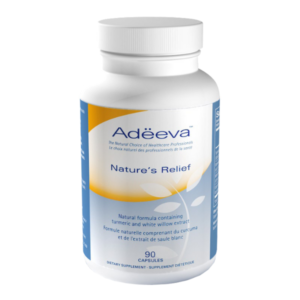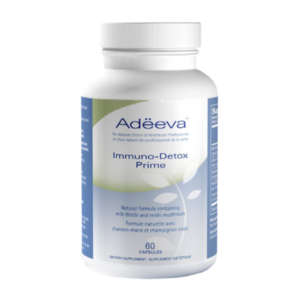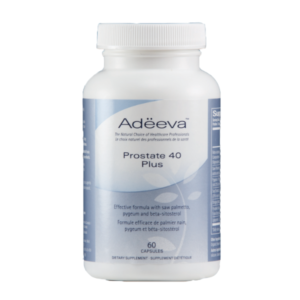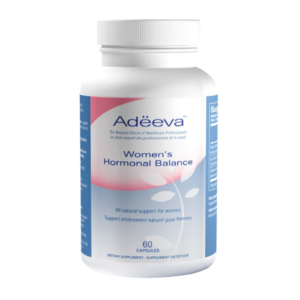
The Key to Cancer Prevention: The mTOR Signalling Pathway
Source: J Anti-Cancer Agents Med Chem (2013) and Int J Mol Sci (2019)
Lifestyle Medicine Update (November 22, 2022)
Introduction:
The mTOR signaling pathway plays a central role in cancer development and aging. While short-term activation of mTOR is essential for preserving muscle mass and bone density, chronic overactivity can contribute to cancer risk and accelerate aging. Factors such as excessive animal protein consumption, being overweight, intermittent fasting, blood glucose control, regular exercise, and plant-based foods can help regulate mTOR. Additionally, supplementation with compounds like curcumin and EGCG can assist in managing mTOR. Understanding and managing the mTOR pathway is vital for cancer prevention and anti-aging strategies.
Understanding the Silent Culprit Behind Cancer
The mTOR signalling pathway might not be a household name, but in the realm of cancer, it’s a central figure. This cellular communication network plays a pivotal role in cancer development and progression, making it a significant focus of attention for researchers seeking ways to prevent cancer and slow the aging process.
The Dance of mTOR in Cancer
In many types of cancer, the mTOR signalling pathway is prone to overactivity. When in this heightened state, mTOR encourages cancer cells to multiply and aids in the formation of new blood vessels, a vital component for tumor growth and its spread to other parts of the body, leading to metastatic cancer. Thus, many cancer researchers agree that regulating mTOR in our cells could be a crucial step in cancer risk reduction and preventing cancer relapse. It could also hold the key to decelerating the aging process.
The Yin and Yang of mTOR Activation
However, it’s essential to recognize that mTOR isn’t all bad. In fact, short-term bursts of mTOR activation serve a valuable purpose, preserving and building muscle mass and bone density. These short-term spikes are essential to prevent weakness, frailty, and osteoporosis as we age. How does this happen? Ideal protein consumption combined with resistance exercise training can trigger the mTOR pathway briefly, ensuring we maintain strength and functionality throughout life. So, in moderation, mTOR activation is a beneficial mechanism. The problem arises when the mTOR pathway remains chronically switched on in our cells.
Unmasking the Culprits Behind Overactive mTOR
Several factors contribute to the chronic activation of the mTOR pathway in our cells, setting the stage for increased cancer risk and accelerating the aging process. These culprits include:
- Excessive Animal Protein: Overconsumption of animal protein, particularly those rich in branched-chain amino acids (leucine, isoleucine, valine), can lead to mTOR overactivity. While lean animal proteins like skinless chicken, turkey, fish, egg whites, non-fat yogurt, and whey protein can be included in moderation, it’s vital to balance these with plant-based protein sources.
- Overweight: Maintaining an ideal body weight is crucial. Being overweight triggers insulin resistance, leading to continuous stimulation of the mTOR pathway by insulin and insulin-like growth factor-1 receptors. This situation escalates the risk of various cancer types. Diabetics, known to have an elevated cancer risk, can attribute a significant portion of this risk to overactive mTOR signalling.
- Intermittent Fasting and Caloric Restriction: While challenging, intermittent fasting and caloric restriction are effective strategies to quiet the mTOR pathway. If you can regularly abstain from food for 14-16 hours within your 24-hour wake-sleep cycle, you can achieve this effect. For example, fasting from 8 PM to 10 AM the following morning is one way to apply this strategy.
- Blood Glucose Control: Keeping fasting blood glucose levels below 90 mg/dl (5 mmol/L) by monitoring carbohydrate intake and waistline can prevent constant stimulation of the mTOR pathway.
- Regular Exercise: Engage in regular aerobic and strength training exercises. Exercise activates longevity genes, such as Sirtuin genes, which helps balance the mTOR pathway.
- Plant-Based Foods: Consume foods rich in natural mTOR pathway inhibitors, including:
- Apigenin: Found in oranges, apples, cherries, grapes, onions, parsley, broccoli, sweet green pepper, celery, barley, tomatoes, and tea.
- Curcumin: A polyphenol in turmeric.
- Fisetin: Found in strawberries, apples, persimmons, and onions.
- Indole-3-Carbinol: Present in cruciferous vegetables, such as broccoli, Brussels sprouts, cabbage, cauliflower, Bok choy, and turnips.
- Isoflavones: Class of flavonoid phenolic compounds in soybeans, including genistein and daidzein.
- Quercetin: A polyphenolic compound in tea, onions, red grapes, and apples.
- Resveratrol: A polyphenol in the skin of red grapes.
- Caffeine: Regular coffee consumption, associated with reduced risks of various cancers like liver and colon.
- EGCG (Epigallocatechin gallate): Found in green tea and green tea extract supplements, well-known for its anti-cancer properties.
- Supplementation: Many health-conscious individuals incorporate daily supplements containing mTOR signalling inhibitors. Some popular options include:
- Curcumin: Known for its anti-inflammatory properties.
- Indole-3-carbinol: Promotes detoxification and has cancer-preventing attributes.
- Soy Extract (containing isoflavones): Supports prostate health and reduces hot flashes during menopause.
- EGCG: Aids in burning excess body fat and offers anti-cancer benefits.
The overarching theme here is to avoid overstimulating the mTOR signalling pathways in your cells consistently. Achieving this goal involves a combination of nutritional choices, exercise routines, and, for some, supplementation. These steps, when followed diligently, hold the potential to reduce cancer risk and protect against its recurrence.
In Conclusion
Understanding and managing the mTOR signalling pathway is a dynamic aspect of cancer prevention and anti-aging strategies. The science and lifestyle adjustments offered here pave the way for a healthier, more resilient life. These insights, combined with an arsenal of nutritional choices and daily habits, provide a robust toolkit in the fight against cancer and the quest for vitality.
References
- Huang S. Inhibition of PI3K/Akt/mTOR signalling by natural products. Anticancer Agents Med Chem. 2013; 13 (7): 967-970. [Read the full study here](https://www.ncbi.nlm.nih.gov/pmc/articles/PMC3775843/).
- [https://www.ncbi.nlm.nih.gov/pmc/articles/PMC6387042/#:~:text=Aberrant%20mTOR%20signaling%20resulting%20from,to%20tumor%20initiation%20and%20progression](https://www.ncbi.nlm.nih.gov/pmc/articles/PMC6387042/#:~:text=Aberrant%20mTOR%20signaling%20resulting%20from,to%20tumor%20initiation%20and%20progression).
- [https://www.nature.com/articles/s41523-020-00187-4](https://www.nature.com/articles/s41523-020-00187-4).
- [https://www.oncotarget.com/article/25253/text/](https://www.oncotarget.com/article/25253/text/).
Eat Smart, Live Well, Look Great,
Dr. Meschino
Recommended Supplements

Dr. James Meschino
ABOUT THE AUTHOR
Dr. James Meschino, DC, MS, ROHP, is an educator, author, and researcher having lectured to thousands of healthcare professionals across North America. He holds a Master’s Degree in Science with specialties in human nutrition and biology and is recognized as an expert in the field of nutrition, anti-aging, fitness, and wellness as well as the author of numerous books.






